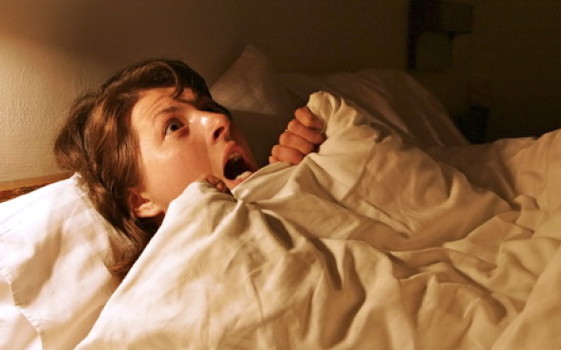Statistics indicate that between 2% and 8% of adults suffer from night terrors. A terror is very different from a nightmare because it interferes with a person’s ability to sleep and causes stress. What's more, night terrors in adults are often a symptom of serious mental health problems, such as post-traumatic stress disorder. Therefore you need to learn to distinguish between ordinary nightmares and adult night terrors. These terrors are a warning sign of serious problems that need to be addressed.

What Will Happen in Adult Night Terrors?
Night terrors in adults are actually sleep disorders in which a person awakens in a state of excessive fear. A classic example of this terror is a veteran that is awakened by a flashback to a terrifying experience in the war. Victims will often behave as if they have been attacked or provoked.
Symptoms of night terrors in adult include:
- Waking suddenly with anxiety, fear and terror
- Difficult to wake, but if awakened, he or she is confused and inconsolable
- Screaming or shouting in bed
- Kicking or thrashing in bed
- Sitting up in bed
- Eyes wide open
- Sweating, breathing heavily and heart racing
- Getting up and running around in the middle of the night
- Aggressive or defensive behavior, such as lashing out or reaching for a weapon
When to See a Doctor
You should seek medical help if the night terrors:
- Regularly disrupt your sleep
- Make you try to avoid sleep
- Cause dangerous behavior or injuries, for example, reaching for a gun
- Always follow the same pattern
- Involve memories or flashbacks of a traumatic event, such as war or an accident
- Involve hallucinations
What Causes Night Terrors in Adults?
According to the American Academy of Family Physicians, possible causes of night terrors in adults are:
- Post-traumatic stress disorder (PTSD)
- Bipolar disorder
- Some depressive disorders
- General anxiety disorder
- Substance abuse, particularly alcohol abuse (the DT’s)
Other common causes of adult night terrors include the following:
- Sleep deprivation
- Stress
- Lights or noise
- An overfull bladder problem
- Drugs, including prescription drugs
- Sleep-disorganized breathing, such as snoring
- Restless Leg Syndrome
- Migraine and other kinds of headaches
- Unfamiliar surroundings
- The effects of diseases such as malaria
How to Deal With Night Terrors in Adults
The first rule in dealing with adult night terrors is not to panic. Most terrors are brought on by stress and are harmless. You should only worry if the terrors do not go away or become more frequent. In more serious situations, you should take these steps.
1. Keep a Sleep Diary
Try writing down such details of the terror as what you do or say and how long it lasts. If possible, you should write down any nightmare or memory associated with the terror, such as flashbacks. This can help therapists get a better look at your situation and find the best treatment.
2. Reduce Stress
Try to identify the causes of stress and eliminate or deal with them. Deep breathing, meditation, prayer, exercises, vacations, music, hot bath and therapy can help you reduce the effects of stress.
3. Take Precautions at Bedtime
Prevent harm by locking doors and windows so you cannot get out when night terror attacks. Lock up any object that can be used as a weapon and make sure that all firearms are unloaded and ammunition is locked up. Make sure all trip hazards, such as rugs or electrical cords, are eliminated.
4. Get Enough Sleep
Sleep deprivation is a major cause of night terrors. Make sure you get 8 to 9 hours of sleep every night. Foster a fixed sleep schedule helps a lot. If necessary, go to bed early and try to nap for a while during the day.
5. Treat the Underlying Condition
Go to a psychiatrist or neurologist, and get a thorough examination. Then start getting proper treatment, such as psychotherapy or counseling. The Veterans Affairs (VA) has many resources for former service people with PTSD. It can also direct non-veterans to other resources in the community.
6. Take Medications
Doctors can sometime prescribe medications. For some people, benzodiazepines might help. But bear this in mind that only take medication if it is prescribed and other treatments fail.